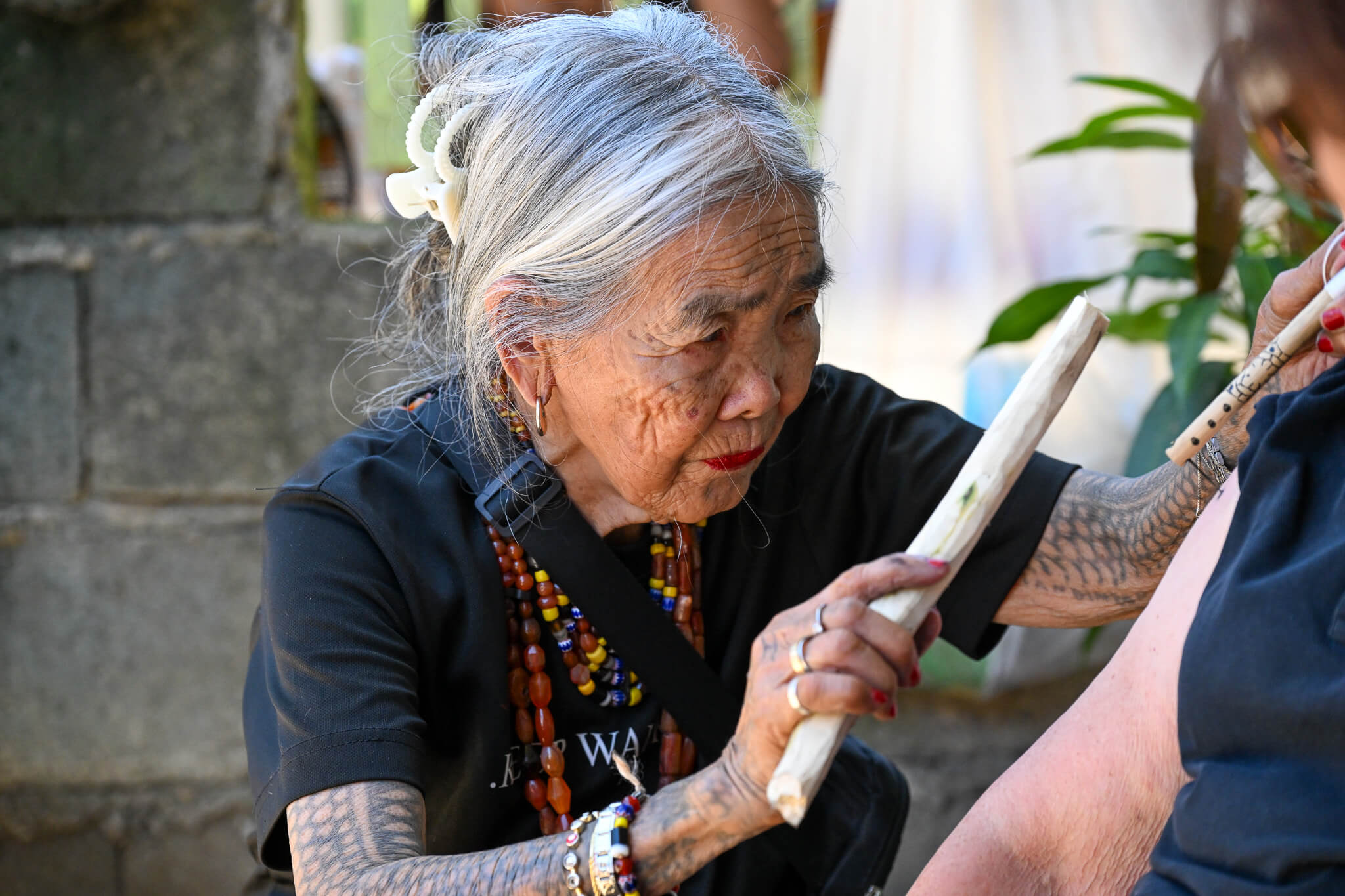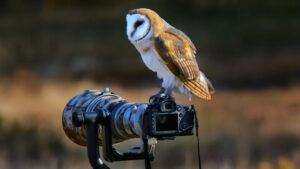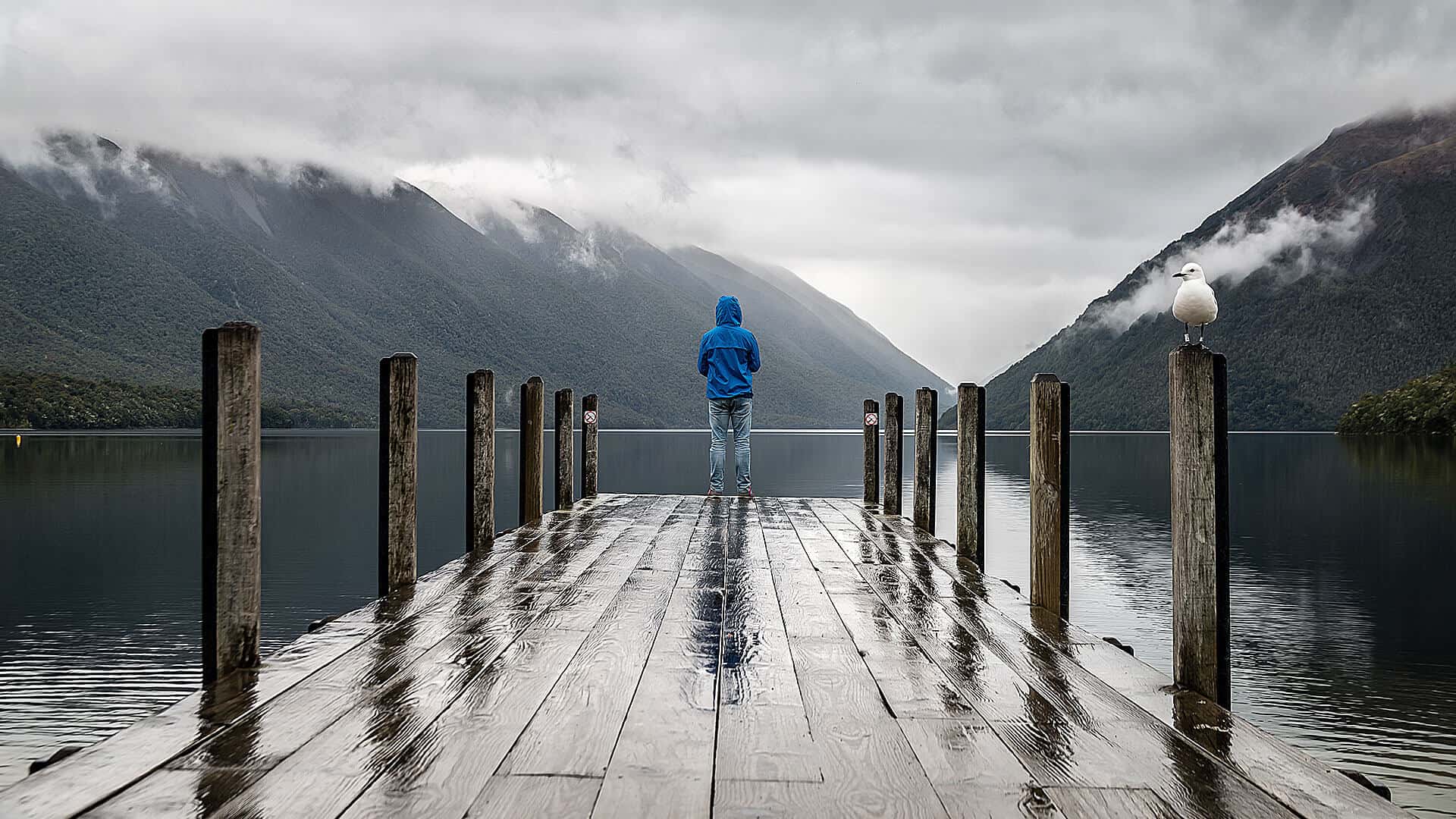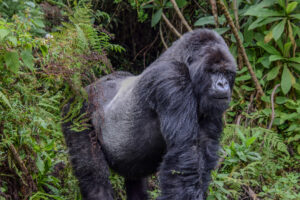Keywords: Apo Whang-Od tattoo experience
Like many, I first heard about Apo Whang-Od through her groundbreaking Vogue Philippines cover in April 2023. At 106 (now 108), she became the oldest person ever featured on Vogue. It was a powerful statement about who gets to define beauty and cultural importance, honoring an indigenous master whose art has survived centuries of colonial attempts to erase it.
What struck me the most was learning that she was the last mambabatok of her generation. A mambabatok is a traditional Kalinga tattoo artist who uses hand-tapping techniques with bamboo and thorns, creating sacred markings that carry deep cultural and spiritual significance – centuries of Kalinga wisdom about art, patience, and sacred transformation that challenged me to rethink the way we live.
I knew I had to make the journey. Not to follow a trend or collect an experience, but because something deeper was calling.
What I experienced with Apo Whang-Od gave me more than a tattoo, it offered a new perspective on how to live with intention. While Buscalan has modernized in many ways, the Kalinga people still hold something precious: the belief that identity is not individual, but collective — rooted in community, ancestry, and the land. For them, personal meaning exists through responsibility: to the tribe, to those who came before, and to the environment that sustains them. What I learned from their sacred tattooing practice — and their way of life — offers lessons our disconnected world needs more than ever.
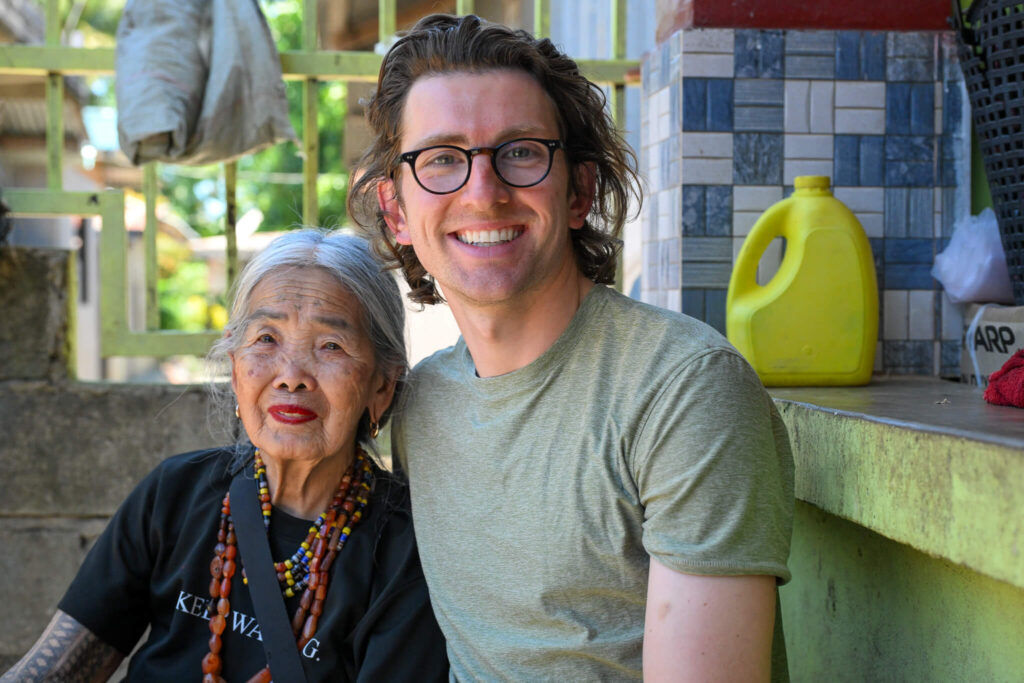
The Path to Buscalan
The 12-hour journey from Manila winds through steep mountain roads, climbing into the Cordillera region of Northern Luzon. As we gained elevation, cell service faded and the noise of modern life gave way to something quieter, older. The final stretch required a ride on a tramline — a local cable system that crosses a ravine before the last hike to Buscalan, faster than hiking up there. After an overnight drive, I gratefully took it.
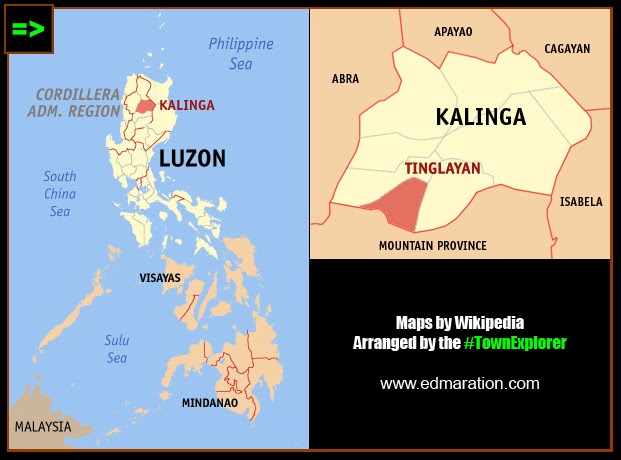
Buscalan feels like a world apart — a mountain village where life follows the rhythms of the land. Families tend rice fields and terraced gardens carved into the hillsides, neighbors share harvests and water, and the sense of community is lived, not spoken. I stayed with a local family who welcomed me into their routines: cooking meals over fire, trading stories, and showing what it means to belong to something greater than yourself.
At 108, Apo Whang-Od is honored in Buscalan not only as an elder, but as a keeper of cultural heritage. She learned batok — the ancient Kalinga art of hand-tapped tattooing — from her father, and became the last mambabatok of her generation. In keeping with tradition, which allows the art to be passed only through bloodlines, she has been training her grandnieces, including Grace Palicas and Elyang Wigan, to carry the practice forward.
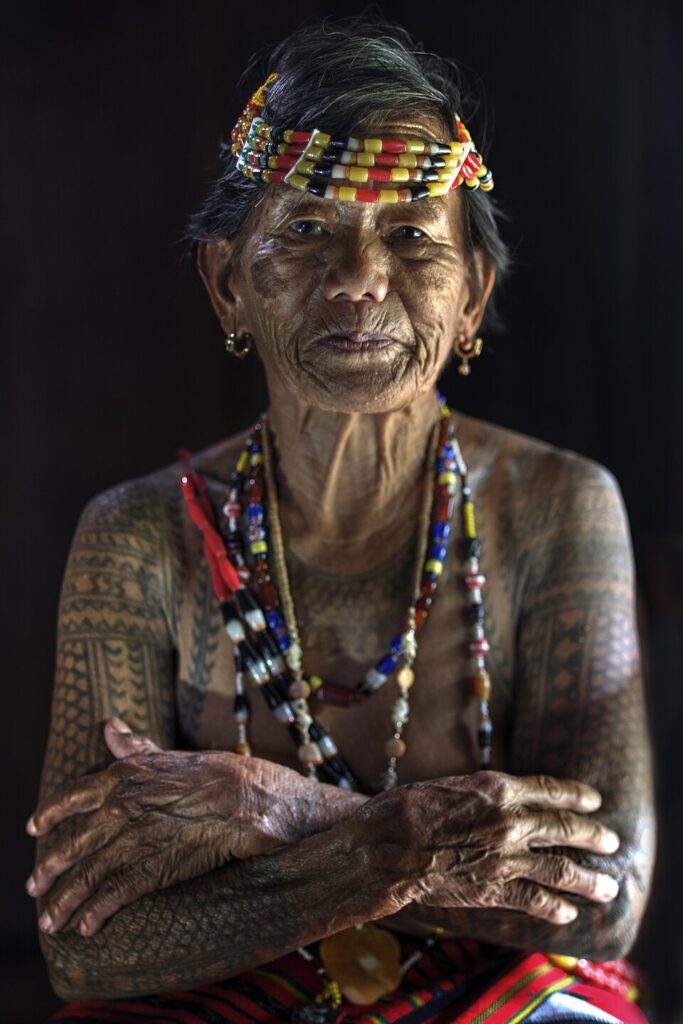
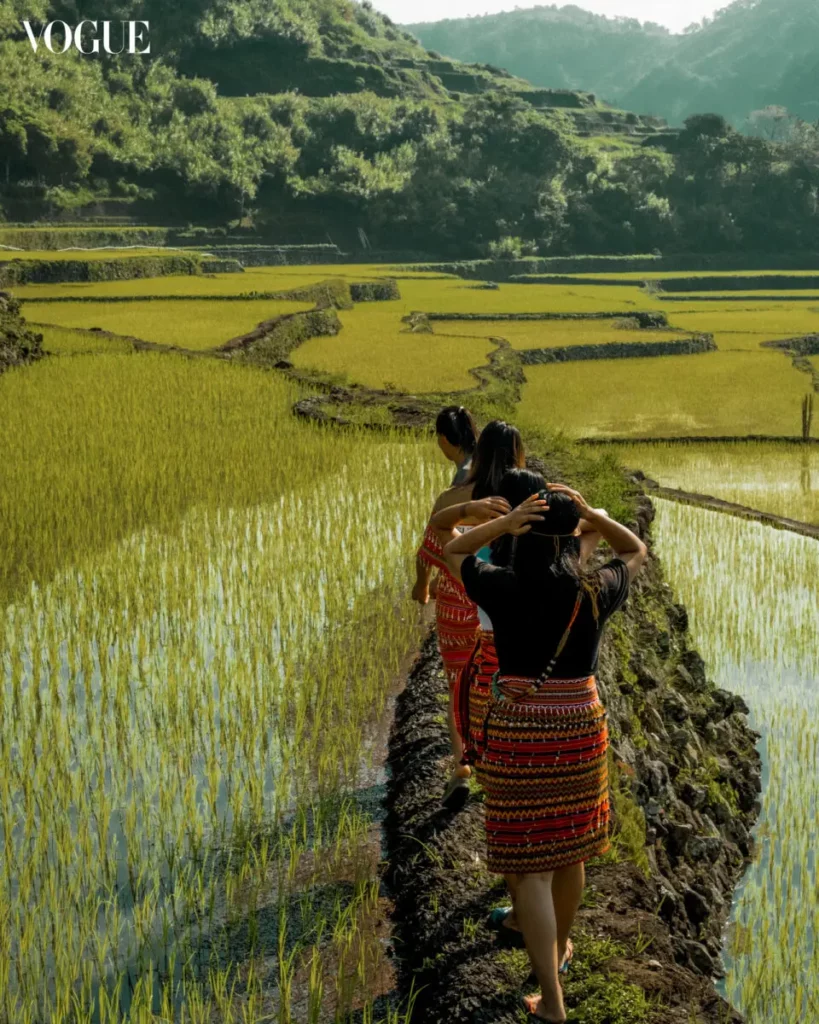
Batok is more than body art, it’s a form of storytelling, identity, and spiritual protection deeply rooted in the Kalinga indigenous culture. For generations, tattoos marked significant achievements: warriors received them as marks of courage in battle, while women bore them as symbols of beauty, maturity, or social standing. Common designs include centipedes, scorpions, snakeskin, and mountain rice — each carrying specific meanings tied to protection, strength, or connection to nature.
The Kalinga are one of several Indigenous communities in the Philippines who have preserved their distinct languages, customs, and ancestral land-based lifestyles, despite centuries of external pressures, including the Spanish colonization that they fiercely resisted. Their resilience has allowed them to maintain their cultural heritage, including the sacred art of batok.
Each tattoo design is rich with symbolic meaning, drawn from nature, myth, and ancestral wisdom—reflecting the Kalinga people’s deep respect for community, resilience, and the land. In a rapidly modernizing world where many traditions are fading, Apo Whang-Od’s work remains a vital, living link to a culture that honors both individual stories and collective identity, one tap at a time.
Today, the context may have changed, but the sacredness remains. Receiving a tattoo from Apo is more than marking skin—it’s honoring a living tradition carried by a woman who holds an entire lineage. This calls for respect beyond a mere transaction or social media moment.
What Apo Whang-Od Taught Me About Life
Meeting Apo Whang-Od was more emotional than I expected. I felt it was an important moment—a connection to a living bridge between past and present. At 108 years old, she has witnessed over a century of change. Apo speaks Kalinga, her native language, so we needed her family’s help to communicate. During my visit, she tattooed the three dots on me, her signature, which is said to symbolize unity, continuity, and connection within the community. Some also interpret the three dots as representing Apo herself, her niece, and her grandniece, highlighting the passing of the tattooing tradition through generations.
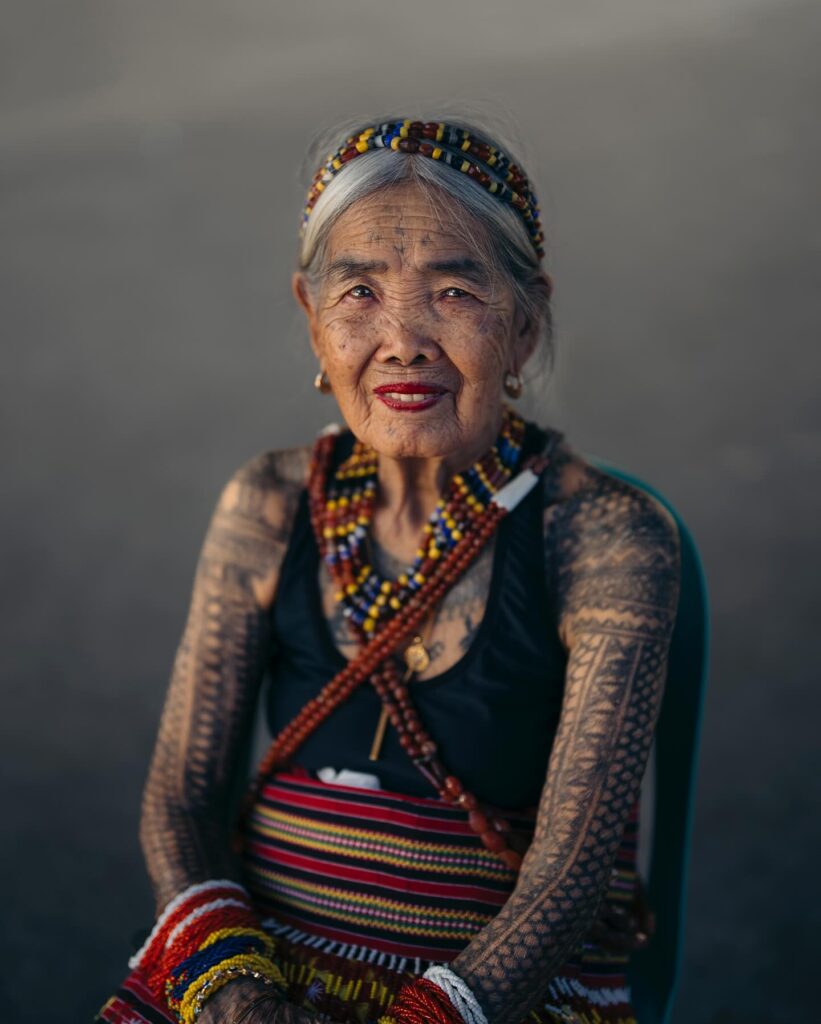
Later, I would receive another tattoo—the snakeskin—from the youngest artist in Apo Whang-Od’s family. This design, rich with meanings of transformation, protection, and resilience, quietly symbolizes a turning point in my journey — reflecting the delicate balance I navigate between different worlds and the ongoing process of becoming. Like the snake shedding its skin, it resonates with my own need to evolve and adapt, embracing growth while honoring the roots that ground me.
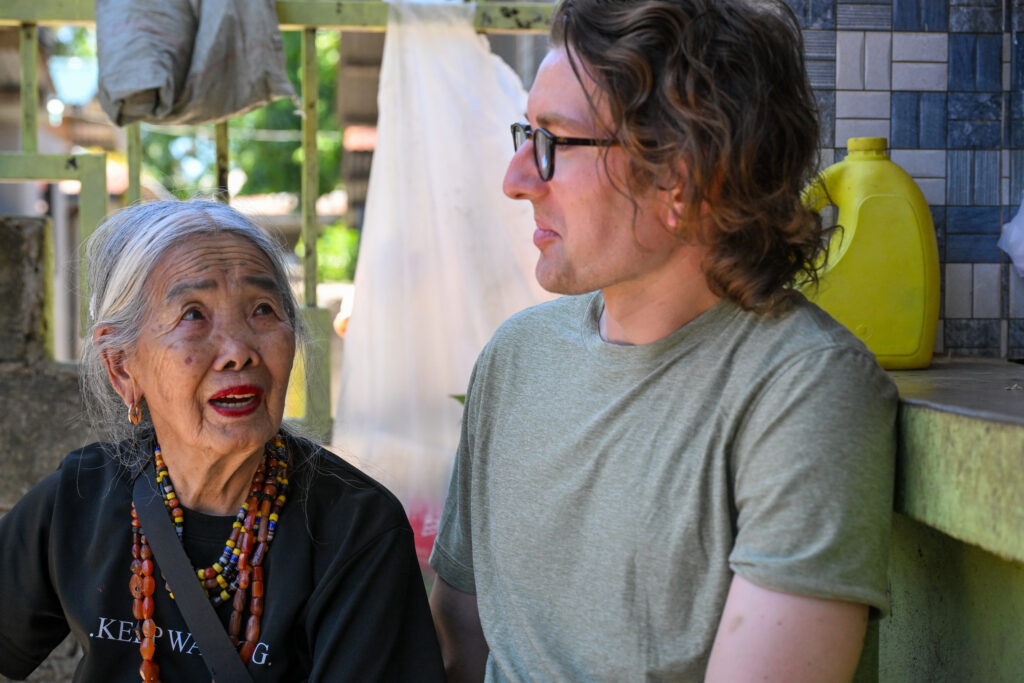
What stayed with me most from Buscalan wasn’t a tidy lesson or slogan. It was the understanding that some things—the stories etched in our skin, the bonds we share with community and land—are living parts of who we are. The Kalinga live deeply intertwined with one another and their environment. Their art, culture, and daily life reflect this enduring relationship. They showed me that truly knowing ourselves means recognizing these ties—to community, heritage, and nature—that shape our being.
So how do we bring this wisdom into daily life? The Kalinga remind us that true identity is not just about individual achievements or appearances but about the relationships we nurture—with our communities, the environment, and the stories that shape us. In a world that often celebrates speed and isolation, their way of life invites us to slow down, honor shared responsibilities, and find meaning in belonging. Whether through small acts of kindness, reconnecting with our roots, or caring for the world around us, we can carry this ancient wisdom forward in our modern rhythms.
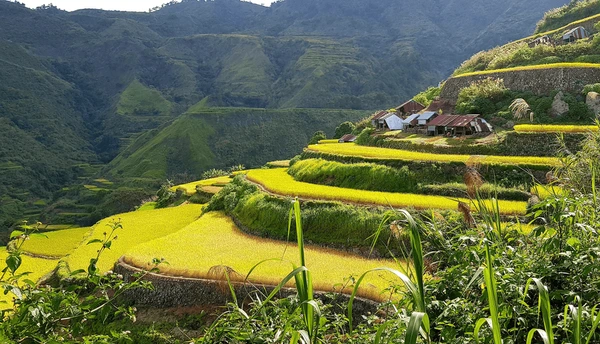
Keywords: Apo Whang-Od tattoo experience
Keywords: Apo Whang-Od tattoo exper

